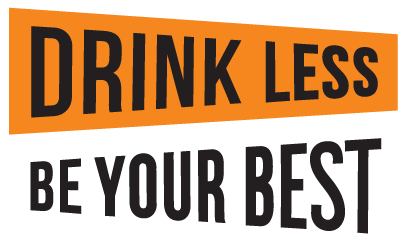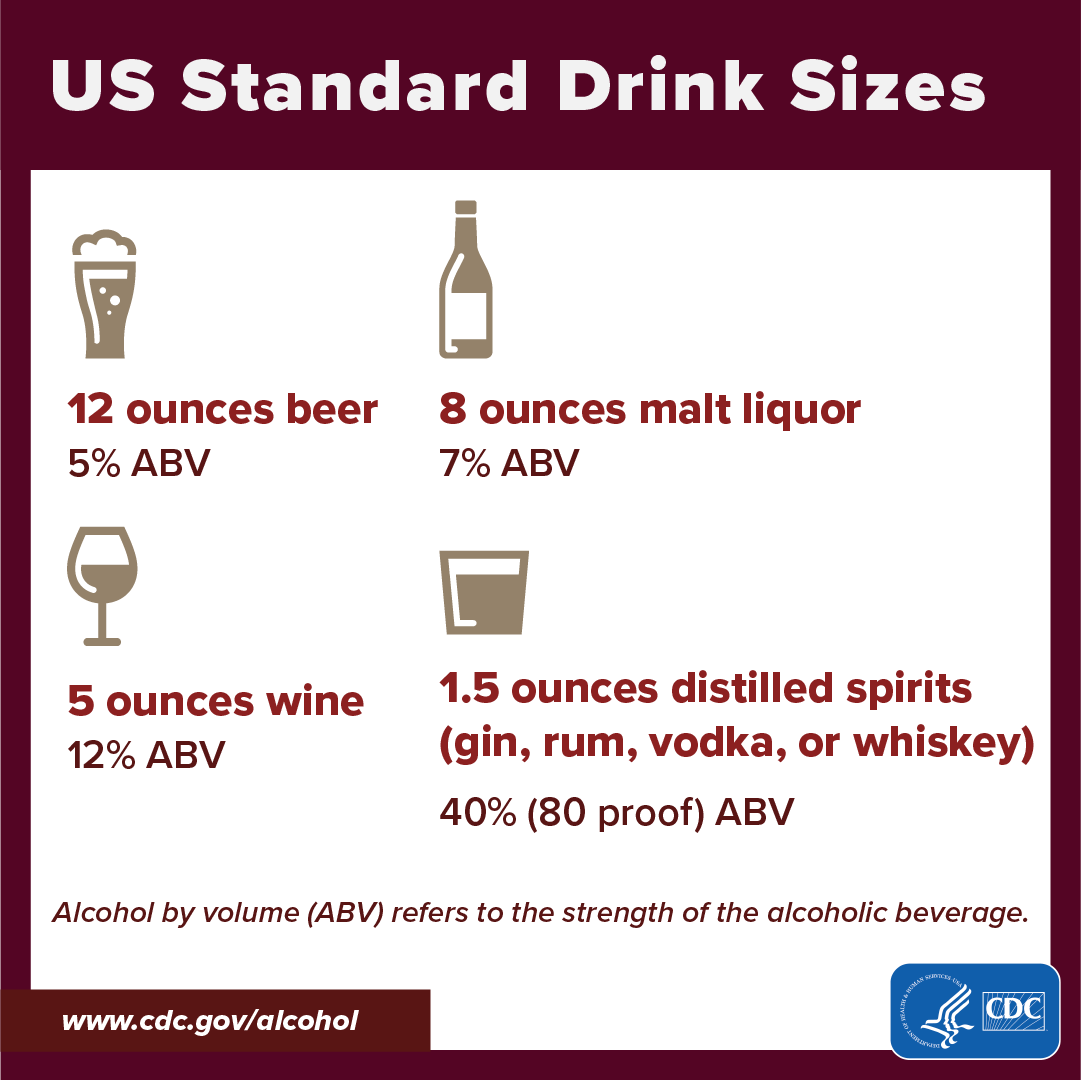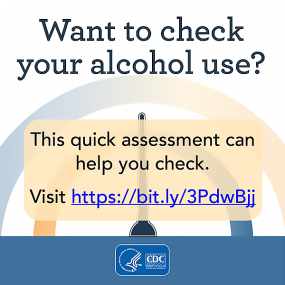How and Why to Drink Less Alcohol
All of us can choose a healthier future for ourselves, our loved ones, and our communities.
Excessive alcohol use, or drinking too much alcohol, accounts for an estimated 1 in 5 deaths among adults aged 20–49 years.1

Drinking too much:
- Can be harmful for those who drink, as well as to the people around them.
- Has immediate effects on our body and minds, which can increase the risk of harm, including being injured, experiencing or committing violence, and engaging in sexual behaviors that could be risky to ourselves or others.
- Can lead to chronic diseases and other serious problems, including:
- Several types of cancer, such as breast and colon cancer.
- Heart disease and stroke.
- Liver disease.
- Alcohol use disorder.
- Mental health conditions.
- Can be deadly, leading to about 178,000 deaths each year in the United States.2
What is excessive alcohol use?
All of the following are considered excessive alcohol use:
- Binge drinking, defined as consuming 5 or more drinks on an occasion for men, or 4 or more drinks on an occasion for women.
- Heavy drinking, defined as 15 or more drinks per week for men, or 8 or more drinks per week for women.
- Any alcohol use by pregnant women or people younger than 21.
There are steps we all can take to create a healthier future for ourselves, our loved ones, and our communities.
- Learn more about the benefits of drinking less alcohol
- Check your drinking. This CDC website allows you to anonymously check your drinking and develop a personalized change plan.
- Choose to drink in moderation or not to drink.
- Drinking in moderation means limiting yourself to 2 drinks or less a day (if you’re a man) and 1 drink or less a day (if you’re a woman), on days when you choose to drink alcohol.
- Some people should not drink any alcohol, including if they:
- Are pregnant or might be pregnant.
- Are younger than 21.
- Have certain medical conditions or are taking certain medicines that can interact with alcohol.
- Are recovering from an alcohol use disorder or are unable to control the amount they drink.
- Avoid giving alcohol to anyone who should not be drinking, including people younger than 21 or those who have already had too much to drink.
- Talk with your health care provider about your drinking and ask for help if you drink too much.
- Learn about and support effective strategies for reducing excessive alcohol use in your community. For example, communities can create social and physical environments that discourage excessive alcohol use, like reducing the number of places that sell alcohol or increasing the price of alcohol by increasing alcohol taxes.
References
- Esser MB, Leung G, Sherk A, Bohm MK, Liu Y, Lu H, Naimi TS. Estimated deaths attributable to excessive alcohol use among US adults aged 20 to 64 years, 2015 to 2019. JAMA Netw Open 2022; 5:e2239485.
- Centers for Disease Control and Prevention. Alcohol-Related Disease Impact Application website. Accessed February 29, 2024.


